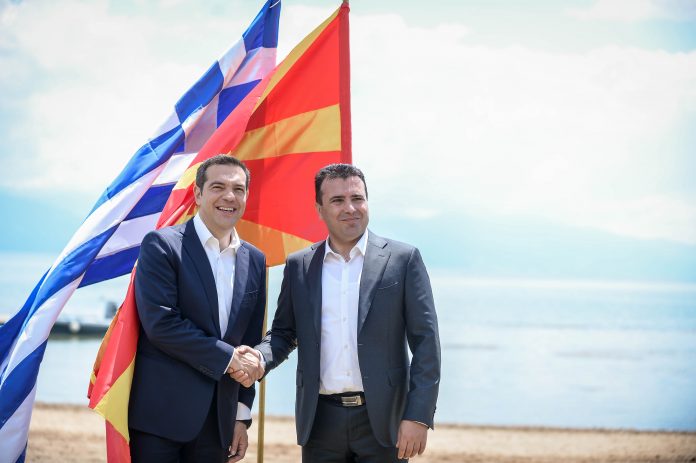A Greek diplomatic source said on July 11 that Greece will expel two Russian diplomats suspected of meddling in the politically sensitive name issue with the former Yugoslav Republic of Macedonia (FYROM).
“These expulsions are justified because they concern illegal activities at the expense of our national security,” the source told the Reuters news agency.
“However, the warnings of expulsions from the Russian side are unjustified because our (diplomats) act within the limits of their duties,” added the source.
In turn, Russia said it would respond in kind to the Greek move, in a rare diplomatic tussle between two Orthodox Christian nations that have traditionally enjoyed warm relations.
As reported by the Reuters news agency, FYROM is expecting an invitation at the Nato summit in Brussels this week to join following its landmark deal with Greece whereby it will change its name to the Republic of North Macedonia. Moscow strongly opposes NATO expansion.
Moscow regards Nato enlargement as a direct threat to its own security. Many countries that were once in Moscow’s orbit have joined NATO and the European Union since the fall of communism in 1989.
Greece had long blocked FYROM’s bid to join Nato and to start European Union membership talks because it says the country’s name implies a territorial claim over a northern Greek province also called Macedonia.
FYROM will only join Nato after its people have endorsed the deal with Greece in a referendum.
In a separate report, The Guardian noted that Zoran Zaev, the prime minister of FYROM, told the Nato summit that Russia was behind some of the protests outside his own parliament. “We are a small country. We want to build a friendship with everybody. There is no alternative but Nato membership,” he said.
He said countries, such as Bulgaria, managed to triple foreign direct investment after joining Nato, and he hoped it would deliver the same boost to his country.
The Greek newspaper Kathimerini named the Imperial Orthodox Palestine Society, an organisation which promotes Russian ties to Christians in the Middle East, as being among the groups trying to fan Russian influence in Greece.
“We had issued warnings to Russian authorities for some time over [the actions of] these specific four diplomats and civilians, and on Friday it was officially raised, giving them a reasonable period of a few days to leave the country,” said a Greek government source.
However, a representative of the society denied it was involved in any alleged attempts to bribe senior Greek Orthodox clergymen, the Russian state Interfax news agency reported.
In Greece, rejection of the deal is, amongst others, coming from the seven MPs inside Independent Greeks (ANEL), the small right-wing nationalistic party in a governing coalition with the left wing Syriza, headed by Greece’s Prime Minister Alexis Tsipras.

